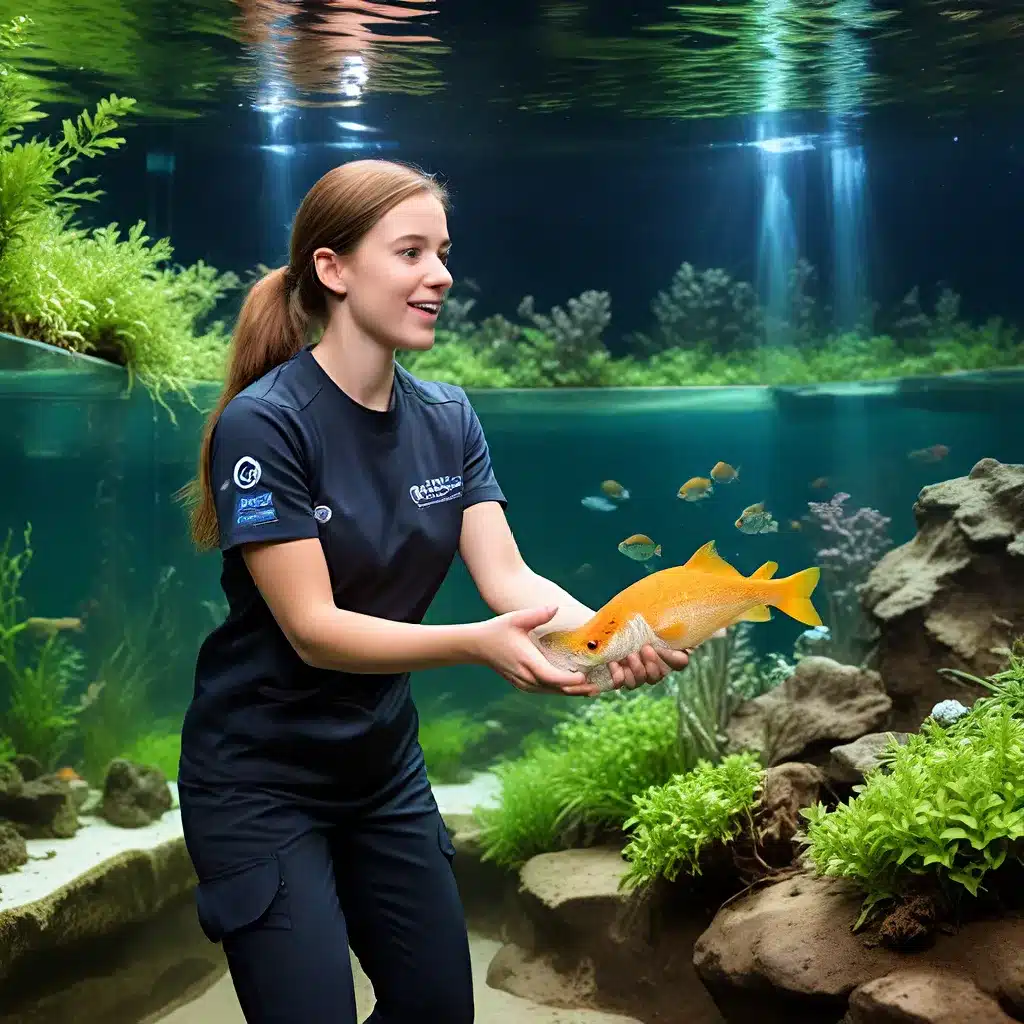
Bridging the Gap: Aquariums as Gateways to Environmental Stewardship
Aquariums have the unique power to captivate and educate people about the wonders of the aquatic world. As “aquatic ambassadors,” these vibrant, living displays can inspire a deeper appreciation and understanding of delicate ecosystems, fostering a sense of responsibility to protect them. By cultivating a meaningful connection between hobbyists and the natural environment, aquarium keeping can play a crucial role in conservation efforts and safeguarding the future of our blue planet.
In this comprehensive guide, we’ll explore the ways in which responsible aquarium keeping can positively impact aquatic conservation. From species-specific care and innovative aquascaping techniques to sustainable water management practices, we’ll uncover the remarkable potential of the humble home aquarium to serve as a gateway to environmental stewardship.
Aquarium Inhabitants: Ambassadors of their Wild Counterparts
The aquarium hobby often starts with a fascination for the captivating colors, unique behaviors, and mesmerizing grace of aquatic creatures. However, this initial intrigue can blossom into a deeper appreciation for the natural world and a desire to protect it. By learning about the specific needs and behaviors of aquarium inhabitants, hobbyists can develop a profound understanding of the delicate balance that sustains aquatic ecosystems.
Species-Specific Care: Providing optimal care for aquarium inhabitants is not only crucial for their wellbeing but also serves as a model for responsible conservation efforts in the wild. Researching the habitat requirements, dietary needs, and social dynamics of each species can equip hobbyists with the knowledge to create thriving, naturalistic aquascapes that closely mimic the animals’ native environments. This attention to detail not only ensures the health and longevity of aquarium inhabitants but also fosters a reverence for the fragility of their wild counterparts.
Aquascaping: Cultivating Aquatic Gardens
The art of aquascaping, or the design and arrangement of aquatic plants, rocks, and hardscape elements, goes beyond mere aesthetics. Skilled aquascapers understand that their creations can serve as microcosms of natural ecosystems, providing valuable insights and inspiration for conservation efforts.
Biome-Inspired Aquascapes: By carefully selecting appropriate plant species, substrate materials, and layouts that emulate real-world aquatic habitats, aquascapers can create captivating displays that educate and inspire. These “living landscapes” not only enhance the visual appeal of an aquarium but also highlight the intricate relationships between flora, fauna, and the underlying abiotic factors that sustain life.
Water Quality Management: The Foundation of Aquatic Health
Maintaining optimal water quality is the cornerstone of successful aquarium keeping and a crucial aspect of responsible conservation. Hobbyists who develop a deep understanding of water chemistry, filtration systems, and nutrient dynamics can make meaningful contributions to the protection of aquatic environments.
Sustainable Water Practices: From implementing efficient filtration methods to optimizing nutrient cycling, aquarium enthusiasts can employ techniques that minimize resource consumption and waste production. By adopting sustainable water management practices, hobbyists can reduce their environmental impact and serve as ambassadors for water conservation efforts in their local communities and beyond.
Aquarium Keeping as a Conservation Catalyst
As aquarium hobbyists deepen their knowledge and appreciation for the aquatic world, they can become powerful advocates for environmental protection. By sharing their passion and expertise with others, they can inspire a ripple effect of conservation-minded behavior.
Education and Outreach: Aquarium enthusiasts can engage in educational initiatives, such as hosting workshops, participating in community events, or creating online content, to share their insights and encourage others to adopt sustainable aquarium practices. These efforts can cultivate a wider understanding of the importance of aquatic ecosystems and motivate people to take actionable steps towards conservation.
Citizen Science Initiatives: Hobbyists can also contribute to scientific research and monitoring efforts by participating in citizen science programs. By collecting and reporting data on water quality, species observations, or habitat conditions, aquarium keepers can provide valuable information to help inform conservation strategies and policy decisions.
Supporting Conservation Organizations: Aquarium enthusiasts can further their impact by supporting conservation organizations, either through financial contributions or volunteer work. By aligning their hobby with the mission of these organizations, hobbyists can directly contribute to the protection and restoration of threatened aquatic habitats and species.
Conclusion: Aquarium Keeping as a Pathway to a Sustainable Future
As we navigate the complexities of environmental challenges, the aquarium hobby stands as a powerful tool for inspiring conservation-minded individuals and driving positive change. By fostering a deeper connection to the aquatic world, responsible aquarium keeping can cultivate a generation of aquatic ambassadors who are committed to safeguarding the health and resilience of our blue planet.
Through species-specific care, innovative aquascaping techniques, and sustainable water management practices, aquarium enthusiasts can become active stewards of the environment, using their passion and expertise to bridge the gap between the captivating world of aquariums and the urgent need for conservation. By embracing this role, aquarium keepers can contribute to a future where aquatic ecosystems flourish, and humanity’s relationship with nature is one of reverence and responsibility.

